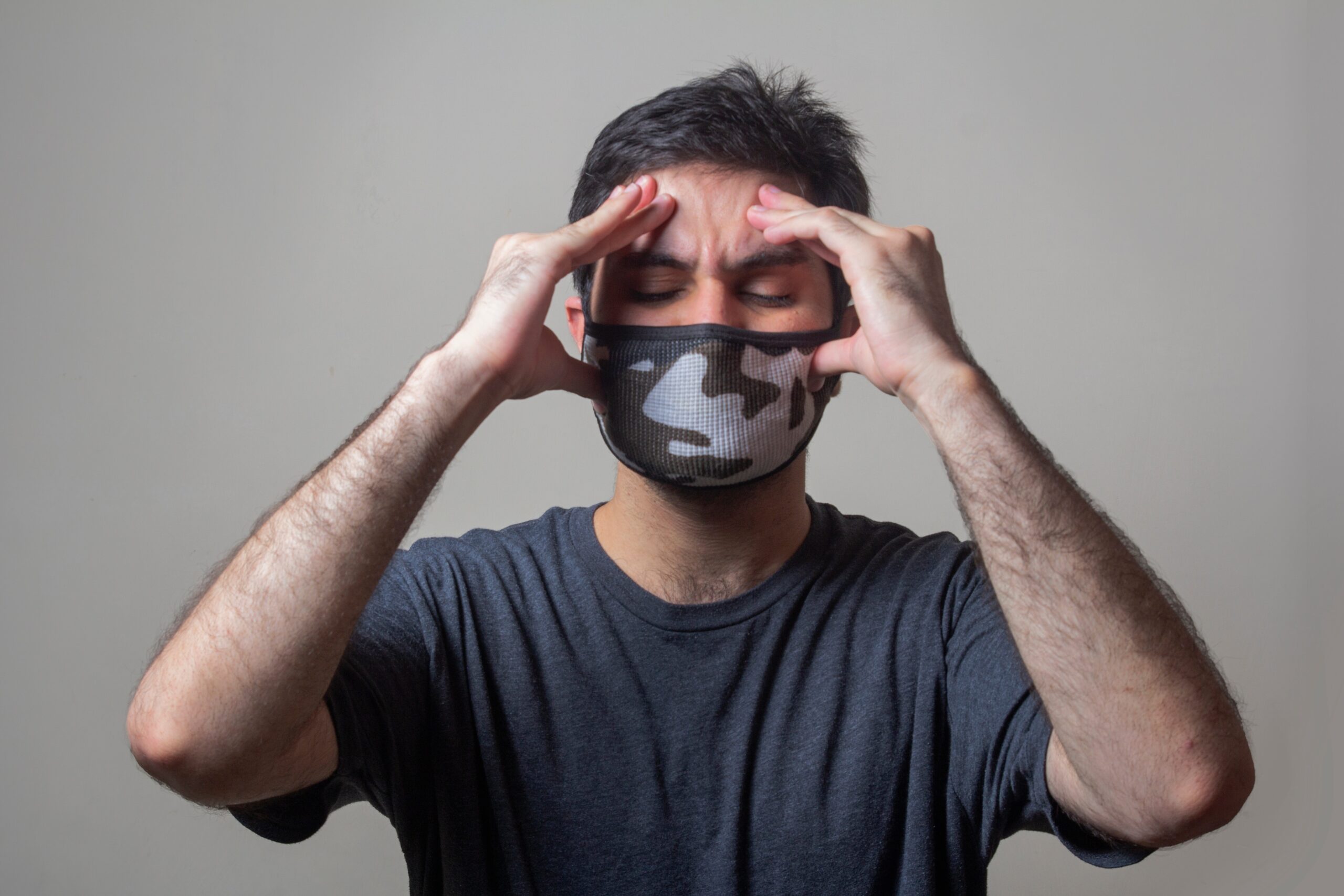
You may have heard the term “COVID long-hauler,” describing former COVID patients who experience symptoms for a long period after their diagnosis. Maybe you’ve read about the 10% of people who still have problems with their sense of smell, even months later. But can COVID also affect our mental health long-term? According to new research, the answer is yes.
Here’s what you need to know about the long-term mental health effects of COVID and simple ways to care for your own mental health as you recover, including recommendations from licensed clinical social worker Jonathan Aspuria from Orange County Health Psychologists.
The research on COVID long-haulers’ mental health
Several studies have found that COVID-19 can have lasting effects on the brain. One recent Georgia State study on mice showed that after COVID-19 infection, virus levels remained 1,000 times higher in the brain than other parts of the body, even after clearing from the lungs.
Said the lead researcher of the study in Neuroscience News: “That’s why we’re seeing severe disease and all these multiple symptoms like heart disease, stroke and all these long-haulers with loss of smell, loss of taste. All of this has to do with the brain rather than with the lungs.”
Other research specifically shows negative effects on long-term mental health. One study showed that one-third of COVID patients experience neuropsychiatric illness six months after infection. The majority of these were anxiety, mood, and substance use disorders, along with very rare cases of stroke and dementia.
While research is still ongoing, you may still be concerned about your mental health if you’ve had COVID.
Evaluating your mental health as a COVID long-hauler
If you think you could be a COVID long-hauler, keep an eye on some of the following areas of concern when it comes to your mental health.
Your thoughts and feelings. Since getting COVID, you might notice a shift in your mental and emotional state. Don’t push this aside. Instead, examine what you’re experiencing. For example, says Aspuria, you might seem to be more irritable, tired, or tense than you usually are. You might even be fearful, especially when thinking about life in the “new normal.
Your habits. Take a close look at your behavior. Has anything changed since last March? For example, says Aspuria, you may notice that your physical activity level has gone down, or that you’ve been drinking or indulging more in other substances. “Anecdotally, I’ve been hearing that alcohol sales have skyrocketed, and so has the consumption of fast food,” notes Aspuria. “It’s important to be mindful that what we eat also affects our mood.”
Finally, check your social media consumption. Keep in mind that just two hours a day of social media use can double your feelings of social isolation, according to one study.
5 ways to improve your mental health today
If you’ve determined that your mental health could be declining, definitely reach out to a therapist as part of your self-care. But in the meantime, you can also take simple steps now to boost your mood.
- Acknowledge your feelings. Take a personal inventory of your feelings. Name them if you can, and be willing to recognize that you’re not okay. Once you can acknowledge how you truly feel, the healing process can begin.
- Connect with others. Sharing with others is hard, but suffering alone with your feelings is much worse. See if you can confide in a close friend. Even if you can’t get together in person, reaching out to others digitally is better than nothing. Also, if you live with others, try to have check-in conversations about how everyone’s doing. Even in a large household, it’s easy to get wrapped up in your own world.
- Get outside. Exposure to sun and air definitely help when you’re feeling out of sorts.
- Improve your diet. This can be done in stages and doesn’t have to mean completely depriving yourself. “Instead of removing things from your diet, consider adding healthy aspects instead,” suggests Aspuria. “So, yes — have that Double-Double from In-n-Out for lunch, and have a spinach/banana/strawberry/greek yogurt smoothie for breakfast!”
- Reflect and cultivate gratitude. Aspuria recommends an intervention called “gratitude building.” To start, simply reflect on what you’ve experienced during the pandemic and identify areas of positivity. Take deep breaths in order to relax both the body and the mind, and then ask yourself the following questions:
- What has the pandemic brought to light?
- What has been made clear in this time of uncertainty?
- Are there any “hard truths” that I have learned?
- Has this situation made it obvious that some things have to change? If so, what?
What you learn from this self-inquiry can help you cultivate better awareness of both the good and the bad, sharpening your perspective while not allowing you to dwell on the negative.
Take care of yourself in therapy
For long-term self-care, therapy can be the best solution. Our providers at Orange County Health Psychologists are highly skilled and well-prepared to help you work through any issues that might develop after your COVID diagnosis. Reach out to us by phone at 949.528.6300 or email info@OCHealthPsych.com for an appointment.
—Written by Ekua Hagan for Orange County Health Psychologists
About Jonathan Apsuria, L.C.S.W.

Jonathan Aspuria is a licensed clinical social worker who provides counseling therapy to individuals, couples, and families struggling with anxiety, depression, domestic violence, trauma, and self-esteem, as well as the everyday stress of socioeconomic difficulties. He works with a broad range of populations and uses a variety of science-based treatment methods including Cognitive Behavioral Therapy (CBT), Dialectical Behavior Therapy (DBT), and Seeking Safety.
Schedule an Appointment
949.529.1122
Aspuria@ochealthpsych.com
CA License #LCSW91635

